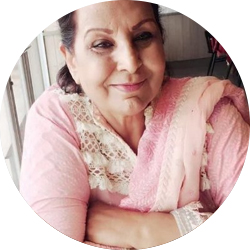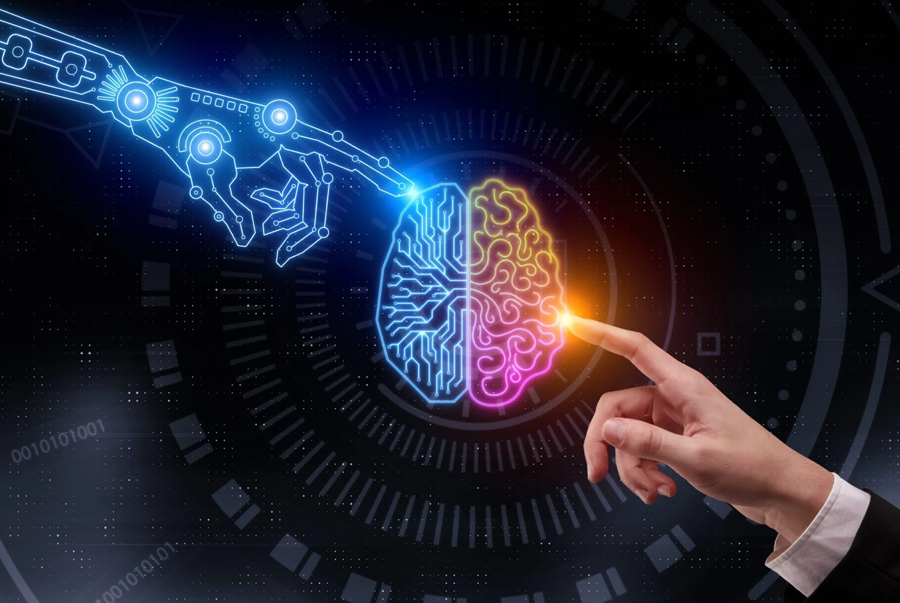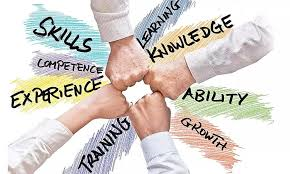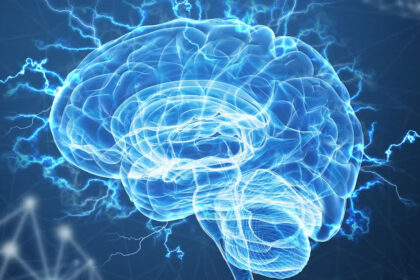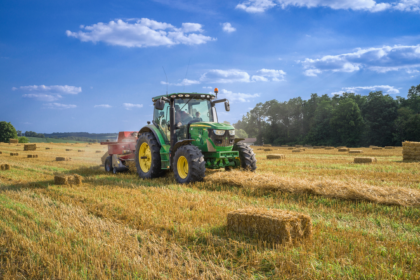The confusion is not my invention. We cannot listen to a conversation for five minutes without being aware of the confusion. It is all around us and our only chance now is to let it in. The only chance of renovation is to open our eyes and see the mess. It is not a mess you can make sense of. Samuel Beckett: an Irish novelist.
Hi readers!
Have you ever thought of the challenge(s) that humanity has been facing? If we take a trip down the memory line, we will notice that around 2000, human rights & human security was emphasized., after 9/11, it was terrorism., between 2010-2017, it was pollution, gender discrimination, illegal immigration, and education., saving earth and sustainable development, climate change, and lifestyle were also considered serious challenges. Thus, it appeared difficult to predict what challenge the humanity will face in the next 30 years because it kept changing during and after every decade,
Have we ever imagined that one fine morning, the entire world will become victim of COVID 19 pandemic? Indeed, it was the biggest challenge mankind faced after World War II. Will it remain so? Nobody can predict because of so many variants that have been erupted and are still being erupting around the globe thus making everybody confused,
Has anybody ever imagined the “Taliban taking” over Afghanistan after 20 years of American occupation? What the future hold for Afghanistan? Is not certain except confusion, camouflage and propaganda and “wait and see policy”,
Environmental change has also remained a serious problem but for some and not for others. Especially when on June 1st, 2017, the then-United States President announced that the U.S. would cease all participation in the 2015 Paris Agreement on climate change mitigation, contending that “the agreement would “undermine” the U.S. economy, and put the U.S. “at a permanent disadvantage”. True or not, it did send a signal that climate change is more a “political” than a serious environmental issue. The signal thus created “uncertainty” in the world. And now, when the new US president announced re-entry in the Paris agreement, it is expected that U.S, China, Japan, and the E.U will make commitments in their Nationally Determined Contributions (NDCs) as an incentive for all other to follow the suit. This is “perception” and only time will determine if this perception transforms into “reality” or not?
Food security, agriculture production sustainably and feeding 8-9 billion population in 2050 is also a serious challenge and the list goes on and on with no end seen in the near future.
Has anybody heard about the HAVANA syndrome, first emerged in Cuba in 2016 affecting US diplomats, spies, officials, and family members, as well as a number of Canadian diplomatic staff deployed in Cuba? Those affected reported dizziness, headache, fatigue, nausea, anxiety, cognitive difficulties, and memory loss of varying severity. The investigation report concluded that “directed pulsed Radio Frequency (RF) energy can explain these symptoms, while some says that it is an anomalous health incident hence, arguments proceeded by skeptical hypothesis like a textbook example of what is and isn’t known except confusion and uncertainty.
The crux of the matter is that these challenges are around for ages and voluminous literature is available on the efforts made to solve them, but they are not yet solved rather, the gravity of their impact is increasing with every passing day due to their changing dimensions, and challenges within these challenges that we never realized earlier: the challenges which are now unfolding before us with a very rapid pace. In my view, all the challenges are linked and have potential to impact people, society and both in turn can impact various human dimension.
This is what I blogged in early 2022. Let’s see what is now happening?
On November 30, 2022, ChatGPT (Chat-Generative Pre-Trained Transformer) developed by Open AI was launched which is:
“famous for enabling users to improve and steer a conversation towards a desired length, format, style, level of detail, and language used. It is thus a chatbot’s advanced conversational capability which allows us to have human-like conversations aided by Natural Language Processing (NLP) tool driven by Artificial Intelligence technology”.
On January 23, 2023, ChatGPT reached 100 million active users, only two months after its launch compared to Tik Tok which took nine months to reach 100 million users. The massive success provoked other companies to release their own versions of AI chatbots, such as Google: a trusted name for creating social media posts *I have already blogged on this topic last week).
But
On 13th February 2023,
Google’s Search Chief warns against solely relying on AI Chatbots for accurate information. Details can be viewed on
The head of Google’s search division, Prabhakar Raghavan stated that,
“these chatbots can sometimes generate false answers that appear to be truthful. Raghavan referred to this as “hallucination (Illusion/fantasy)” where a machine produces a plausible but entirely fake response, as per a report from Sky news”.
Despite this,
Google unveiled its own AI chatbot named Bard, hoping that it will compete with ChatGPT. However, an advertisement for Bard showed it providing an incorrect answer to a question about the James Webb Space Telescope.
Shares of Alphabet, the parent company of Google, plunged due to such error and concerns about the potential threat posed by ChatGPT to Google’s search dominance. Raghavan, therefore,
emphasized the importance of releasing Bard to the public but also acknowledged the great responsibility that comes with it. The company is exploring how to integrate AI capabilities into its search functions, especially for questions that have multiple answers.
The “Bard” thatGoogle announced in February 2023, is a conversational generative artificial intelligence chatbot powered by LaMDA (family of conversational large language models developed by Google). Bard was first released to a select group of 10,000 “trusted testers” and
On March 21, 2023, Google began opening access to Bard inviting users to join a waitlist. On May 10th, 2023, the waitlist was removed, and Bard began available in over 180 countries and territories.
And Now, Meta Platforms, Inc., a California based American multinational technology corporation that owns and operates Facebook, Instagram, Threads, and WhatsApp, among other products and services, announced on
July 5th, 2023, “Thread” (in 31 languages) which is also another social media and social networking service operated by Meta Platforms. The app offers its users: the ability to post and share text, images, and videos, as well as interact with other users posts through replies, reposts, and likes,
However,
20 days later, on July 25th, 2023, Meta released an update: details of which can be viewed on https://www.cnbc.com/2023/07/25/meta-threads-gets-chronological-feed-for-people-you-follow.html.
Mark Zuckerberg wrote in a post that after the most demanding update, the App will allow users to see:
chronological posts from people they follow instead of the algorithmically curated content that appears in the “For you” feed and will be “Ask and you shall receive”
Algorithmic curation is online media using computer algorithms like search engine algorithms and social media algorithms.
Threads update will also allow users to sort their “Activity” feed by follows, quotes and reposts, allow people to see their liked posts in their settings and translate certain posts that appear in a different language (Wow).
Twitter users can see similarity in “For you” and “Following” tabs to the existing layout on Twitter, which has been rebranded as “X” ever since Elon Musk acquired it in late 2022.
Although Thread has strikingly similar look to Twitter’s core icons and features such as character limits, but the Thread has been advertised as more positive “public square” which can be:
any place that a story can be shared such as a newspaper, magazine, book, website, blog, song, broadcast station or channel, street corner, theater, conference, government body and communities that never embraced Twitter.
The timing (July 5, 2023) of “Thread” first launch was crucial when series of outages and controversial “rate limit policies” were affecting the Twitter users which probably enabled Thread platform to quickly climbed to 100 million users through engagement on the app ever since it has been shaped. More new features are in the air and will be launched as early as possible is claimed by Meta.
Dear readers! isn’t it a tsunami of technology? Indeed, it is. Changes are coming or occurring so rapidly that one hardly gets familiar with a name (e.g., ChatGPT) the other made its appearance (e.g., Meta’s Thread). A book titled “Technology Tsunami Alert” published December 2020 and can be viewed at https://www.austinmacauley.com/book/technology-tsunami-alert
provided glimpses of how dramatically our rapidly changing future will impact our children, family, business and society, including how we can avoid consequences and choose a better future.
According to the Book, the change is “accelerating” so rapidly that the world will probably see more of it in the next 20 years than humans have seen in the past 2,000 years. The book reveals, rate of technological change expected in the next decade and predicted that “absolutely everything” in our lives is going to change to the extent that we will hardly recognize our world by 2030–2035.
The book further emphasized the need to grasp and understand the dramatic impact of accelerating change, disrupting/unruly/disorderly technologies and countless other trends will have on our children, families, lifestyles, businesses, customers, wealth, society and countries: all reveals through the use of art of futurism: an Italian art movement of the early 20th century aiming at capturing the dynamism and energy of the modern world in art for creating a unique and dynamic vision of the future.
Futurism is the art/science of evaluating actual and emerging trends in all spheres of life, including the disruptive consequences of the convergence of countless technologies and trends for the next 10, 20, even 30 years, evaluating all the risks and opportunities, and then choosing a better future.
The winners of the future will be those who choose to embrace change and adopt a new approach to life sooner rather than later. The message of the book is very clear, dear reader. Are you ready for this change?
See you next week. Take care,
Bye
